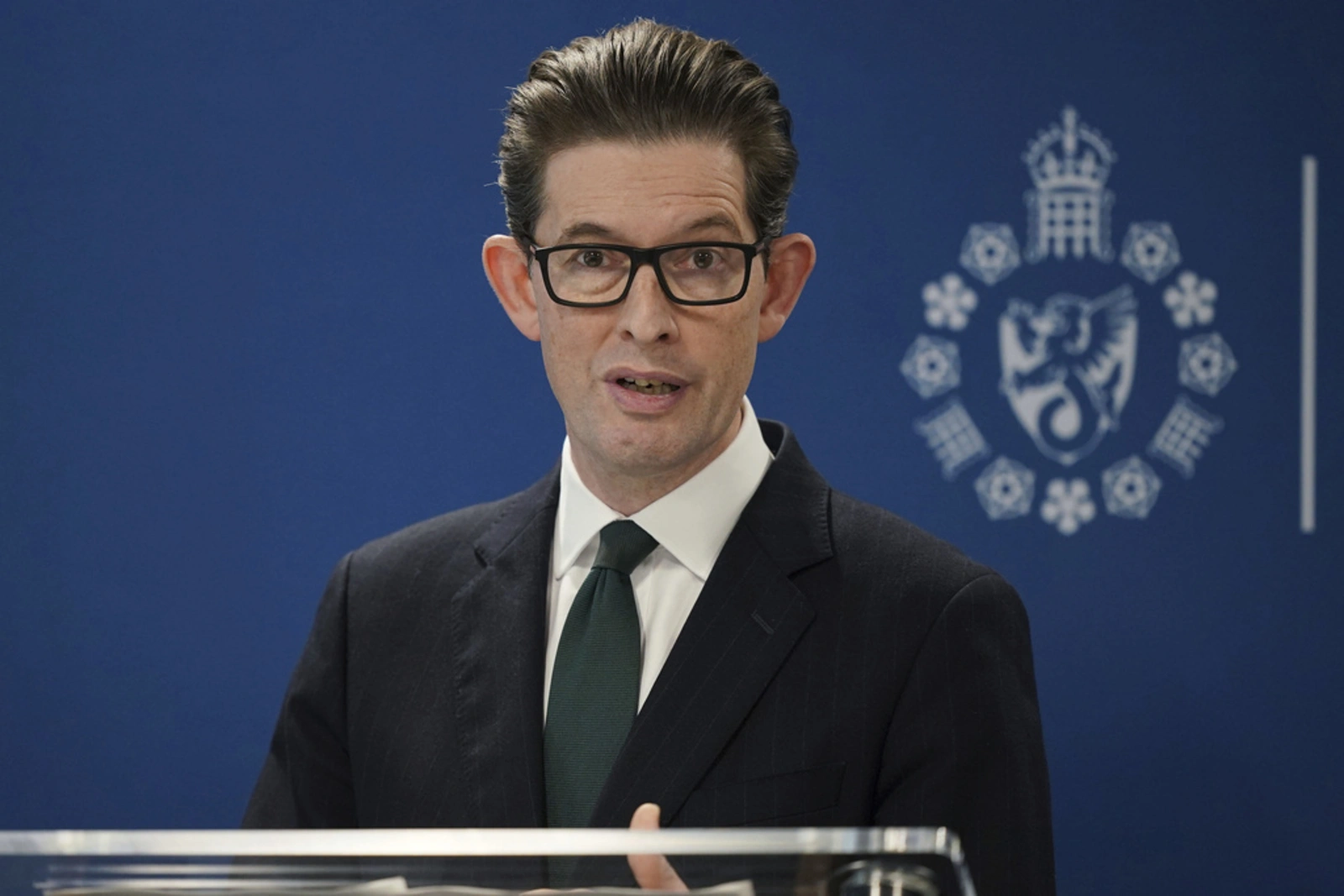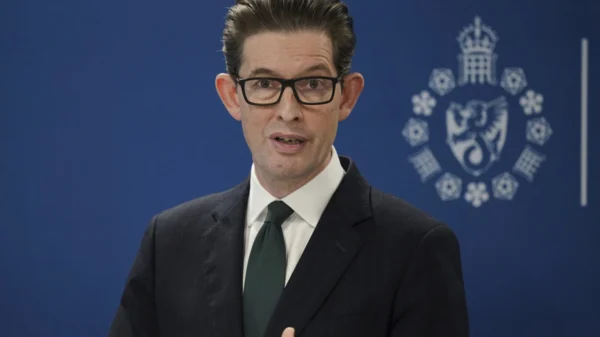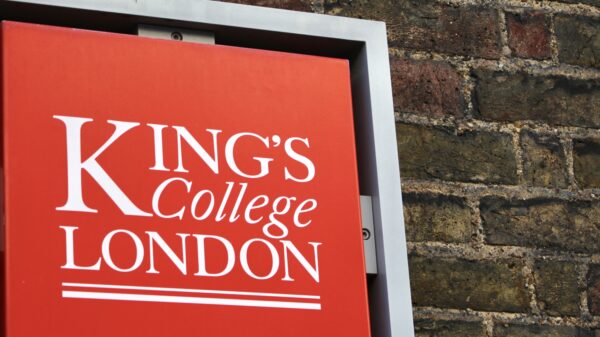Staff writer Reece Ohalloran analyses the recent MI5 report from Director Ken McCallum on threats the UK and its implications.
We live in an increasingly dangerous and unpredictable world. Russia’s full-scale invasion of Ukraine exacerbated the deterioration of EU-Russian relations, China continues to undermine national and academic security and new unseen threats are developing online. It makes one wonder how we are protected from such threats. In October 2024 MI5 Director General Ken McCallum gave an insightful speech on the challenges the UK faces, and the efforts by MI5 to combat the ever changing character of terrorism and threats to its national security.
For the full speech transcription visit: Director General Ken McCallum gives latest threat update | MI5 – The Security Service
Current state of terrorism
McCallum notes the success of the agency in disrupting 43 late-stage attacks. While many of these have been Right-wing and Islamist terrorism, he reveals that these labels are too straightforward to capture the range of ideologies that encompass terrorism.
Role of the Internet: Involuntary Celibacy
McCallum recognises the role of the internet in the spread of hateful ideologies. Terrorist attacks can be planned online and hateful ideology can be spread, all fuelled by misinformation. The ‘involuntary celibacy’ — or incels — online subculture is a striking case of how the internet spreads hateful ideologies. These are heterosexual men frustrated with their inability to form sexual and romantic relationships or talk to women in general. Their frustrations develop a hateful, misogynistic worldview that is exacerbated by online communities and forums. The forums through which incels feel a semblance of community are places where sexual frustrations coalesce with far-right ideologies.
Violence and mass murders are the extreme culmination of this coalescence. Sexual frustrations can boil over to such a degree that they take out their rage against women and sexually successful men. It was the 2014 Isla Vista attack that set the precedent for incel mass murders. Elliot Rodgers killed six people in a mass stabbing and shooting before taking his own life. In a video posted on his YouTube His manifesto, posted just before his attack, arguably established the foundations for the subculture. Extreme incel communities position him as a ‘hero’.
Role of the Internet: Save Europe
Relatedly, McCallum alludes to the darker sides of the internet. All social media platforms have a darker side wherein ideas are spread without much notice. The ‘Save Europe’ TikTok trend is curious because it has some traction. It is not a uniform political movement or community, but individual users posting far-right edits. These edits rely on memes and music, principally slowed-down or sped-up versions of songs. A notable example is MGMT’s ‘Little Dark Age’. The videos share common far-right ideas: anti-immigration, xenophobia, nationalism and Islamophobia. It also hinges on misconstrued historical interpretations and in other cases completely false data about the rising Muslim population. Painting an image of a Muslim majority Europe in the coming decades. In reality 46.2% of Brits affiliate with Christianity and 6.5% as Muslim. A tremendous Christian decline is not expected. All of this points towards a quasi-decentralisation of far-right groups which can be dangerous in the future.
Covert Action
State actors pose a threat too. Covert action has been a staple of international relations, for it is a crucial tool for statecraft. McCallum highlighted the threats posed by autocratic regimes. They invest heavily in covert operations: whether it be through propaganda, political actions (including economic), or paramilitary operations. When the MI5 report first came out, news networks like Reuters, the BBC, and the Guardian were quick to emphasise Russia’s mission to generate mayhem in the UK. Such covert action is not new. Think of the poisoning of Alexander Litvinenko and the Salisbury attack in 2018. With Russia’s full-scale invasion of Ukraine — compounded by the West’s response — potential acts of sabotage are not unprecedented. Covert action is expected in international relations, however it is still a concern for the security services.
China
McCallum concludes by mentioning China and its deeply unsettling covert action. The relationship between China and the UK is interesting. The UK relies on China economically, yet they too have invested in covert operations. There have already been unveilings of alleged spies from China. In one instance, a parliamentary researcher was arrested for allegedly spying. In another, Christine Lee was named by MI5 for interfering in political engagements. Chinese operations go further than this, with operations to infiltrate academia.
According to a public information campaign by UK-China Transparency (UKTC) — a registered charity that aims to spread knowledge of the UK’s relationship with China — the Chinese Communist Party (CCP) has attempted to restrict academic freedom on British campuses. An estimated 150,000 students and 5,000 staff from the People’s Republic of China (PRC) have been targeted for potentially discussing topics that challenge the CCP. Roar conducted an interview with UKTC director Sam Dunning in which he highlighted the funding of the King’s Lau Institute. With the institute receiving 99.9% of funding from Dr Ming-Wei Lau, a business tycoon with possible links to the CCPs United Work Front, an organisation said to be interfering with UK politics and academia. This all raises questions about the threats to academic integrity on British campuses.
Despite all of this, McCallum highlights the difficulties of preventing attacks on a strategic level. The agency’s resources are finite and therefore, with the expansion of terror threats, it is increasingly difficult to prepare for the event of an attack. He maintains confidence in the agency’s ability to protect the UK from terrorism and autocratic regimes.
Conclusions for MI5
There is heightened risk in our world, domestically and internationally. MI5 is working extremely hard to prevent terror attacks. McCallum has illuminated, terrorism is more complex than it initially seems. Can an act of terrorism by an incel be considered in the same bracket as an Islamist? Moreover, MI5 invest heavily in subverting covert action operations sanctioned by autocratic regimes. While we may expect such operations from Russia, especially with the escalation in Ukraine, subversion from China is frightening. Infiltration into academia represents a compromise of academic freedom. Our world is dangerous, uncertain, and constantly innovating, which forces intelligence agencies to constantly adapt against evolving threats.


















